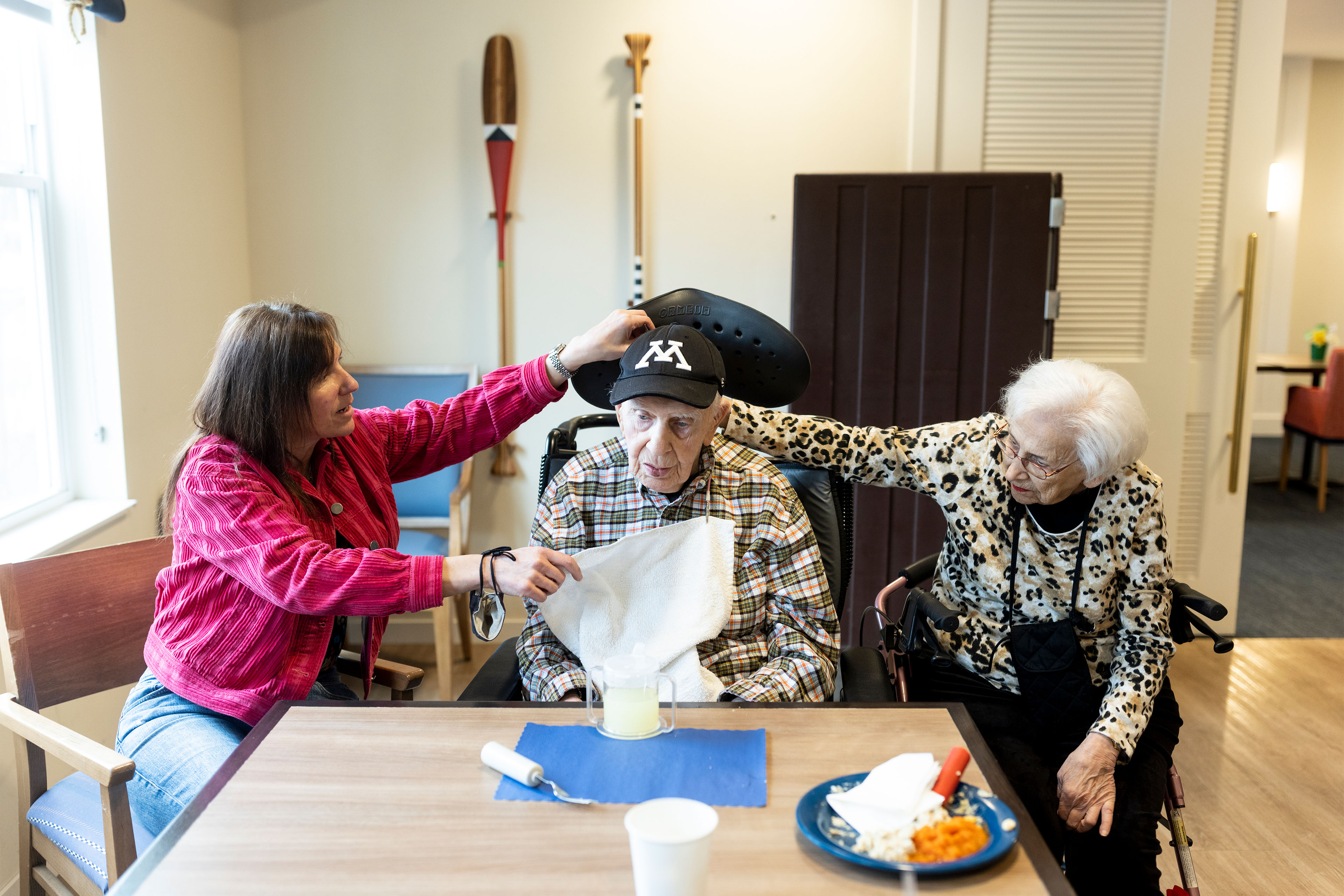Enjoy a well-organized lifestyle in a secure Memory Care facility.
Enjoy a well-organized lifestyle in a secure Memory Care facility.
Blog Article
Understanding Just How Aided Living Sustains Individuals With Mental Deterioration Treatment Needs
Helped living centers are increasingly acknowledged for their essential function in attending to the intricate treatment needs of people with mental deterioration. Assisted Living. By supplying a structured yet nurturing atmosphere, these centers not just promote security and health yet also promote a sense of autonomy with personalized treatment plans. Moreover, engaging tasks and socializing opportunities are essential to improving cognitive feature and emotional health. The nuances of how these elements connect to create a supportive community warrant closer evaluation, specifically in recognizing their long-term impact on residents' quality of life.
Introduction of Mental Deterioration Care
Dementia care is significantly crucial as the occurrence of dementia-related problems climbs amongst aging populaces. This expanding market trend requires a thorough understanding of mental deterioration and the various methods to care. Mental deterioration encompasses a series of cognitive impairments that conflict with every day life, impacting memory, reasoning, and communication abilities. The problem can differ dramatically in its discussion, requiring tailored treatment methods to satisfy individual needs.
Effective mental deterioration care involves a multidisciplinary method, incorporating medical, emotional, and social support. Medical care professionals, caretakers, and member of the family have to work together to develop a nurturing atmosphere that advertises the well-being of individuals with dementia. Key elements of dementia care consist of customized treatment plans, cognitive excitement therapies, and behavioral interventions aimed at boosting quality of life.
In addition, it is important to recognize the emotional and emotional difficulties encountered by both clients and caregivers. Education and learning and training for caretakers play a crucial function in cultivating understanding and empathy, thereby boosting communications with those affected by dementia. As the demand for dementia care proceeds to rise, the emphasis has to remain on providing thoughtful, person-centered treatment that appreciates the dignity and preferences of individuals living with this problem.
(Dementia Care Charlotte)
Duty of Assisted Living Facilities
Helped living centers play an important role in offering care for people with dementia, offering an encouraging atmosphere that balances independence with the essential support. These centers are made to accommodate the special demands of locals, promoting a sense of community while making certain security and wellness.
In an assisted living setup, experienced staff members provide perpetual support, assisting with daily tasks such as bathing, dressing, and medication management. This level of treatment is crucial for people with dementia, who might fight with these jobs as a result of cognitive decline. In addition, centers typically include memory-enhancing programs and social tasks tailored to promote cognitive performance and encourage social communication.
The physical environment of assisted living centers is likewise optimized for safety and security, featuring protected entryways, well-lit paths, and clear signs to assist residents navigate their environments. These communities foster a sense of belonging, lowering the feelings of seclusion that individuals with mental deterioration might experience.
Personalized Care Program
To guarantee that each resident obtains the most proper care, individualized treatment plans are vital in assisted living facilities for individuals with mental deterioration. These plans are customized to meet the distinct requirements, preferences, and challenges encountered by each homeowner, promoting their self-respect and quality important source of life.
The growth of an individualized treatment strategy commonly starts with a thorough evaluation performed by health care specialists. Assisted Living. This analysis reviews the person's cognitive abilities, physical wellness, emotional health, and social choices. Input from relative and the resident themselves is critical, as it gives important understandings right into their background, routines, and personal passions
When the evaluation is complete, a multidisciplinary group works together to create a treatment plan that lays out particular goals and interventions. This might include medicine management, daily living support, and behavioral approaches customized to reduce anxiousness or agitation.
Regular reviews and updates to the care strategy guarantee it stays relevant as the individual's condition develops. Assisted Living. By prioritizing individualized care, aided living centers can boost the total wellness of locals with dementia, cultivating an atmosphere that values their uniqueness while resolving their care needs properly
Engaging Tasks and Socializing
Involving tasks and socialization play an important duty in enhancing the high quality of life for residents with dementia in assisted living centers. These tasks are made to promote cognitive feature, advertise psychological well-being, and foster links among locals. Structured programs, such as art treatment, songs sessions, and reminiscence treatment, supply possibilities for people to express themselves artistically while additionally causing positive memories.
Socialization is just as essential, as it deals with sensations of isolation and loneliness that can accompany dementia. Group tasks, consisting of games, group getaways, and communal eating, motivate interaction and assistance citizens build encouraging relationships with peers and caretakers. This feeling of neighborhood not just improves their everyday experiences however additionally adds to an extra stable psychological environment.
Furthermore, engaging activities can be tailored to individual choices and cognitive degrees, making sure that each resident can take part meaningfully. By producing a setting that prioritizes involvement and social communication, aided living centers can substantially improve locals' general mental health and wellness, promoting a feeling of objective and belonging. Eventually, these efforts are necessary components of thorough dementia care, substantially influencing citizens' overall wellness and happiness.
Benefits of Community Support

In addition, neighborhood support promotes social interaction, which is important for cognitive and emotional health and wellness. Involving with peers and joining team tasks can enhance state of mind and encourage memory, adding to a better feeling of belonging. This social engagement is essential, as isolation and seclusion can exacerbate cognitive decrease.

(Dementia Care Charlotte)
Verdict
In final thought, helped living facilities serve as important settings for people with dementia, using structured assistance that promotes both freedom and safety. The application of customized treatment plans makes certain that each citizen's unique demands are satisfied, while involving activities promote social communication and cognitive interaction.
Report this page